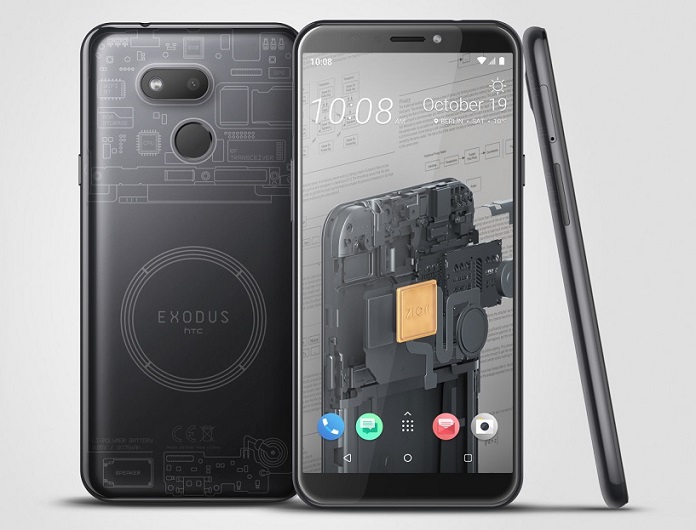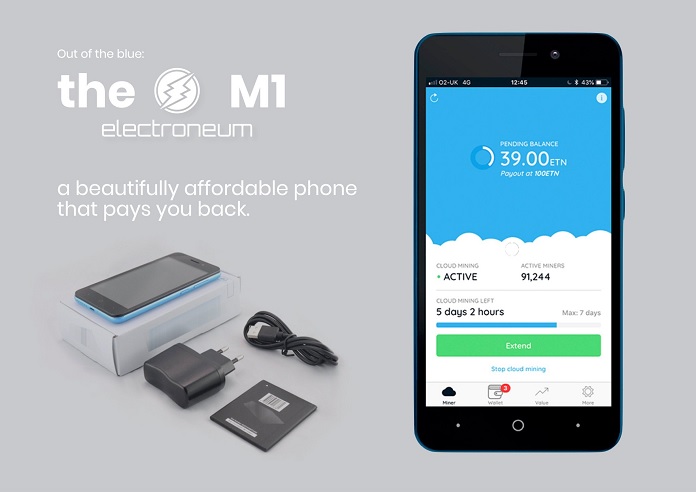Bitcoin is the most influential virtual currency, impacting rapid and significant technological transformations. Smartphone developers are among the latest casualties of the crypto revolution. Developers are now creating a new breed of smartphones with unique features designed for safeguarding virtual assets. Such features also help users to improve the processing of Bitcoin payments and managing digital assets.
The crypto-enabled smartphones heavily rely on blockchain, Bitcoin’s underlying technology. The first crypto-centric smartphones hit the market in 2018 and have proven their worth in securing Bitcoin. The most popular smartphones customized to crypto include HTC Exodus, Samsung Galaxy S10, Sirin Labs Finney, and Electroneum M1.

The Relationship between Smartphones and Bitcoin Security
The Bitcoin network generates unique encrypted public and private keys for every user. The public key acts as the address that users give to their counterparts for sending and receiving payments, while the private key serves as the password or PIN for accessing a user’s Bitcoin account or wallet.
The blockchain records all Bitcoin transactions on a shared digital ledger. However, users can only access the blockchain ledger using their private keys. That means losing the private keys could result in losing the Bitcoins in a user’s wallet. That is why the safety of the private key is a critical concern for every crypto user.

Bitcoin users store their digital assets on crypto wallets online or offline. Every wallet keeps a clear record of user activities and the private keys linked to them. Crypto wallets are available in various formats, including desktop applications, physical hardware, and smartphone apps. Leading crypto exchanges offer users free Bitcoin wallets but, you can also acquire them online from other service providers, for free or at a fee.
Despite the various crypto storage methods, smartphone apps are becoming the most secure approach to short-term and long-term Bitcoin storage. The main reason behind that is the Trusted Execution Environment (TEE) within the crypto-centric smartphones. TEE offers a different platform with a persistent storage capacity and an independent memory, isolated from the rest of the gadget. That allows the TEE to remain secure even if the Android operating system is entirely compromised.
Users can only access the TEE through an API, running small applications within the TEE ‘trustlets.’ Thus, it is impossible for malware or other forms of online intrusion to extract users’ private keys from the TEE. A well-written smartphone wallet using trustlets to manage the users’ private keys ensures the best security. Smartphones with additional protection measures for the TEE offer even much better Bitcoin security.

The hardware-based Trusted Execution Environment (TEE) is the holy grail that gives those breeds of new smartphones an edge over desktops, tablets, and laptops in Bitcoin security. Besides, smartphone-based Bitcoin wallets are more convenient than hardware wallets such as USB drives or disconnected devices. While cold wallets are the best for long-term Bitcoin storage, they are poorly adapted to frequent usage, contributing to inconvenience.
Crypto-centric smartphones provide an extra layer of protection for virtual assets through their in-built hardware wallets. Those wallets work like an offline virtual safe, keeping users’ data, including their private keys, encrypted and protected from intrusion. The blockchain-enabled smartphones are also robust, designed to handle various programs such as accessing decentralized apps, sharing data with other users, and retrieving crypto rewards. That also contributes to the ease of processing Bitcoin payments, with fewer security risks.
Every crypto user should be very keen on the storage of their digital assets. And, that is why you need a reliable and safe crypto wallet to protect your assets from the threats of hackers. Smartphones with Trusted Execution Environment features offer a secure and convenient platform for Bitcoin storage.
